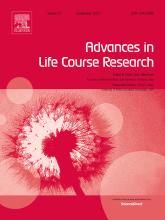Do early life traumas condition the psychological consequences of pandemic stressors? Using national data from the Crime, Health, and Politics Survey (May-June 2021), we examine whether early life traumas buffer or amplify the impact of cumulative pandemic stressors (CPS) on anger, an understudied measure of emotional distress. We examine two competing perspectives. The trauma amplification perspective posits that people who experience early life traumas are especially vulnerable to subsequent stressors, while the trauma resiliency perspective suggests the opposite, that people who experience traumas in early life are less vulnerable to subsequent stressors. The trauma resiliency perspective was partially supported by our analyses. Although early life traumas abated the impact of three or more pandemic stressors on anger, we failed to observe any attenuation at lower levels of pandemic stress exposure. We extend previous research by recasting the common stress proliferation model as a stress modification model and by focusing on feelings of anger. Findings are discussed in the context of social stress, mental health, and the COVID-19 pandemic.
